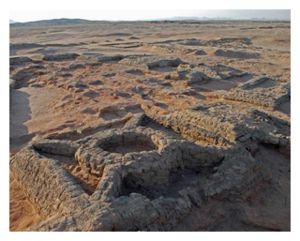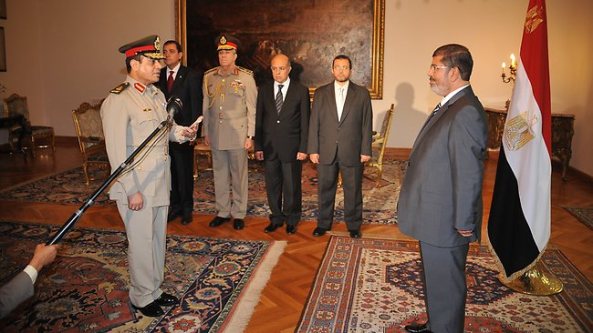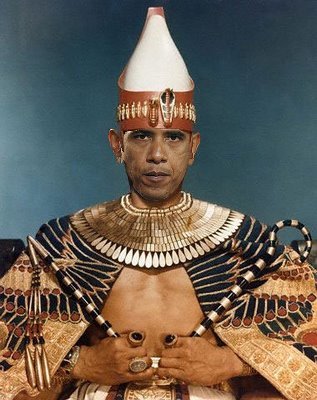
Barak Obama’s journey to the Holy Land hardly resembles the trek of Moses through the wilderness. Nonetheless, his flee from accountability does remind of that often professed transparency. In this case, he cannot hide from his misdeeds. An open question remains, will public outrages banish the POTUS under the weight of his transgressions. Alternatively, will the powers of Pharaoh succeed in suppressing his enemies?
“Who made you a ruler and judge over us? Do you mean to kill me as you killed the Egyptian?” Then Moses was afraid and thought, “Surely the thing is known.” (NRSV Exodus 2:14)
This deed is the event that sends Moses on his long journey. The Old Testament is careful to say that Moses killed the Egyptian when no one was around. Yet the implication in the Bible is that you can run, but you cannot hide. Barry S. Roffman’s Ark Code offers an esoteric, if not bizarre theory that attempts to make a connection with the Hebrew Torah.
Barak OBAMA – REINCARNATION OF PHARAOH, KING OF EGYPT, may be a stretch by most mainstream standards. However, the political point that Obama seeks to dictate to others certainly has the stain of Pharaoh.
“This matrix was originally posted in conjunction with President Obama’s overt hostility toward Israel. When the crisis arose in Egypt where there was widespread opposition to President Mubarak, Obama declared, “What is clear — and what I indicated tonight to President Mubarak — is my belief that an orderly transition must be meaningful, and it must begin now.” The demands made by the U.S. President had a tone that made it sound like he was also elected as President of Egypt. There seemed to be no concept of Egyptian sovereignty, or of the need for Egypt to solve its own problems internally. On the matrix, BARACK OBAMA is the axis term. His name is shown at its 6th lowest ELS in wrapped Torah (which requires more than one computer pass through the 304,805 letters of Torah to find). It is directly crossed by one of the Torah’s 8 uses of the term PHARAOH KING OF EGYPT. Perhaps President Obama has a distant memory of being Pharaoh, King of Egypt in a past life. Indeed, there is a statue that backs this idea in the Egyptian Museum in Cairo that was attacked in the rebellion, and which was at the heart of the rebellion in Cairo’s Tahrir Square!
Who will play the role of Pharaoh? As shown above, a statute in the Cairo Museum offers a huge clue. It and the actions of Obama, when combined with the Torah Code matrix above, and the odds below appear to make the answer rather apparent.
The p value of the match of BARACK OBAMA and PHARAOH KING OF EGYPT is just ~0.015. It equates to about one chance in 66 that we could find such a match. By itself this is only of mild interest. However, when the matrix is expanded to just 170 letters, a second occurrence of PHARAOH KING OF EGYPT is seen. With just 7 remaining such terms to match, the p value of the larger matrix is now adjusted to 0.000104, which is about one chance in 9,607 – highly significant.”
Mr. Roffman’s conclusion: “It is not certain who was the Pharaoh of the Exodus, but one suspect is Akhenaten. His statue is found in the Cairo Museum, and it is a dead ringer for President Obama.” For an op-ed viewpoint authored by ANDRÉ ACIMAN, in the New York Times, The Exodus Obama Forgot to Mention, illustrates the complexity of living together, much less in harmony.
”PRESIDENT OBAMA’S speech to the Islamic world was a groundbreaking event. Never before has a young, dynamic American president, beloved both by his countrymen and the nations of the world, extended so timely and eager a hand to a part of the globe that, recently, had seen fewer and fewer reasons to trust us or to wish us well.
As important, Mr. Obama did not mince words. Never before has a president gone over to the Arab world and broadcast its flaws so loudly and clearly: extremism, nuclear weapons programs and a faltering record in human rights, education and economic development — the Arab world gets no passing grades in any of these domains. Mr. Obama even found a moment to mention the plight of Egypt’s harassed Coptic community and to criticize the new wave of Holocaust deniers. And to show he was not playing favorites, he put the Israelis on notice: no more settlements in the occupied territories. He spoke about the suffering of Palestinians. This was no wilting olive branch.
It is strange that our president, a man so versed in history and so committed to the truth, should have omitted mentioning the Jews of Egypt. He either forgot, or just didn’t know, or just thought it wasn’t expedient or appropriate for this venue. But for him to speak in Cairo of a shared effort “to find common ground … and to respect the dignity of all human beings” without mentioning people in my position would be like his speaking to the residents of Berlin about the future of Germany and forgetting to mention a small detail called World War II.”
Viewing the Ed Show video, from the progressive media, Netanyahu Sets US Conservatives Straight on ‘Anti-Israel’ Obama, attempts to give the impression that playing nice with Bibi Netanyahu implies progress. Just how realistic is this assessment, when examined in light of the record of the administration?
How far the daring darling of the peace process has fallen from grace among the Middle East Semites, should not be a surprise. Even the pro-Israel establishment Daily Beast questions Obama’s ability and commitment to engage the eternal feud in the article, How Obama Became Netanyahu.
“When it comes to the Palestinians, Obama is also governed by political fear. Obama’s own dovish instincts on the Israeli-Palestinian conflict are clear.
Before he won the Democratic nomination in 2008, Obama spoke openly about Palestinian suffering, about the narrow confines of the Israel debate inside the United States, and abouthis dim view of Likud. But ever since his bruising, and ultimately futile, conflicts with Netanyahu over settlements in 2009 and the 1967 lines in 2011, Obama has gone to great lengths to avoid Israel-related fights. During the past 18 months, he’s barely uttered a public word about settlements or the 1967 lines. Last year’s Democratic platform excised previous language pledging a “personal” presidential “commitment” to the peace process. And now Obama is traveling to Israel without any specific plans for moving toward a Palestinian state.
Obama is essentially telling Palestinians to keep their heads down until an Israeli leader comes along who wants to create a viable Palestinian state. Or until ordinary Israelis stop worrying about the ultra-Orthodox and the price of cottage cheese and create another peace movement. Or until politics change in Washington. He’s telling Palestinians to relinquish every form of counterpressure they have and put themselves at Israel’s and America’s mercy, even though this trip itself is evidence that without Palestinian counterpressure, America and Israel will do little else except entrench the status quo.”
Woe is I, for the “so called” reincarnated Pharaoh; his pilgrimage to the Promise Land is not exactly a vacation in Eden. No “parting of the waves” on this visit for the Tempter look alike. Even on the home front, ‘The Bible’ viewers: Seeing Obama in Satan gains traction.
“The similarity was seen and commented upon by people hostile to the president by people who because of the their general political opinions, found it quite “obvious” that the Devil and the president should look so much alike.
Plenty of the president’s biggest fans also saw the similarity and went to social media to spread the word about it. Why? Because, according to them, it was all part of the producers’ plan to smear the president and appeal to the “Bible thumpers” who oppose him.
In other words, both groups saw the president in the Devil – one group because they see the Devil in the president, and the other because they see the Devil in those who strongly oppose the president.”
If not a Pharaoh or a Beelzebub, what precisely is Barak Obama? While he surely would like to be the sheikh of the last days, he certainly is no vessel of revealed scripture. The “born again” Netanyahu – Obama love fest, is no transcendental relationship. Only by answering, Who made you a ruler and judge over us?, can serious minded brothers of good will cross over into the promise land of honest accountability.
Obama is a creature of satanic control and implements global Talmudic law. With the abandonment of Mosaic Law and the New Testament gospel, the international community is executing a worldwide inferno of hatred and death. “Let my people go” applies to all of humanity. The exodus from perdition needs universal acceptance that only obedience to God is the path to paradise.
Source
I AM is at the doors does not agree with everything in this article. It is an article I wanted to share and have people see though. Blessings and love in Jesus name.
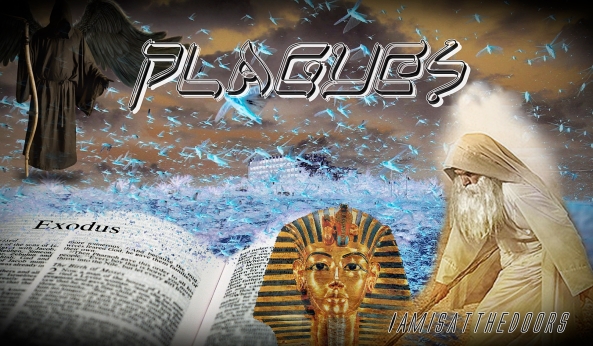
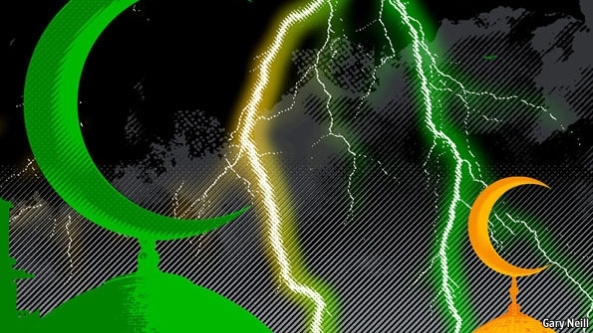






 from a hospital bed.
from a hospital bed.